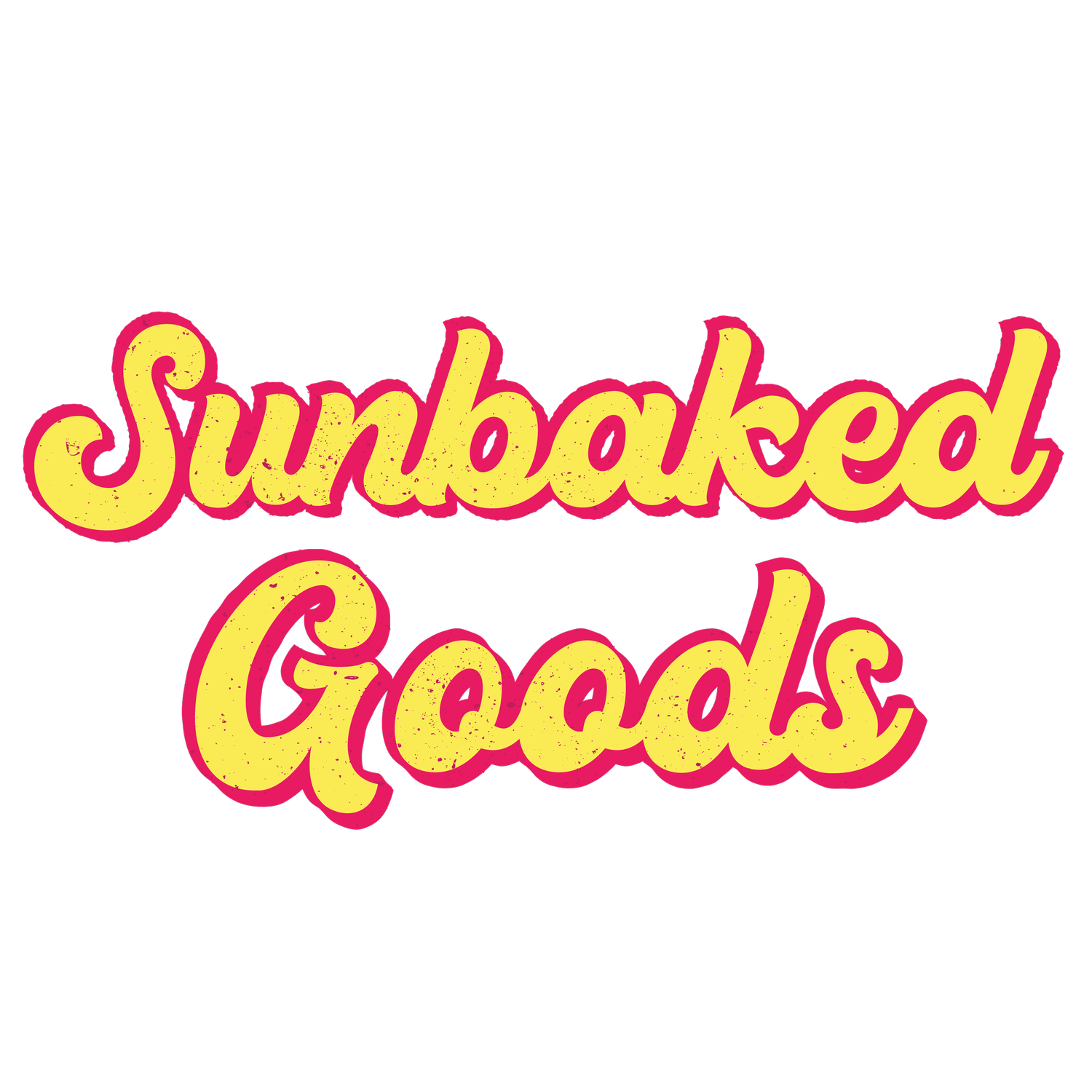Baked 101
Baked 101
What is an edible?
A Sunbaked Goods Crash course on edibles
Edibles - everyone talks about them, but what actually makes something an ‘edible’?
To put it simply, an edible is any food or drink that contains cannabinoids. Cannabinoids are a fundamental part of the cannabis plant. These naturally occurring chemical compounds contribute to the myriad effects cannabis consumers experience when they light up a joint, eat an edible, or drop a cannabis-infused tincture under their tongue. [Source]
Sunbaked Goods edibles typically contain either THC, the main intoxicating compound in cannabis that gets you high, or CBD, a cannabis compound that does not get you high but offers medical benefits.
As you’ve probably heard, Edibles have a reputation as one of the most potent forms of cannabis. When we consume an edible, our digestive systems and livers metabolize the THC into a more potent form, called, 11-hydroxy-THC, which also lasts significantly longer than a smoke sesh, vape, or dab. This is why we recommend starting with 1/2 of a dose and working your way up!
How long do edibles last?
How we wish we had an exact answer for you!
Individual metabolisms along with external factors such as eating on an empty stomach, age, and preexisting conditions, may impact onset and dissipation times.
You can expect the effects of edibles to peak around 1-2 hours after consumption and dissipate over 2-3 hours on average; whereas the effects of smoked cannabis tend to peak within 10 minutes and rapidly dissipate over the following 30-60 minutes.
What are the benefits of edibles?
Although we have yet to discover all of the benefits of the cannabis plant, we are able to examine the benefits of consuming edibles vs. consumption via combustion.
Many people prefer edibles because you don’t have to smoke anything to get high! By consuming infused goods, you save your lungs from carcinogens (and the added benefit of not having to air out your apartment when the landlord drops by).
Edibles can provide long-lasting relief to chronic symptoms like pain, often making them a preferred choice for medical patients. Many consumers also take them to relieve anxiety and for general relaxation. [Source].
“Start slow,
go slow”
CBD, THC, What Does It All Mean?
Cannabis produces a variety of compounds known as plant cannabinoids.
Cannabis doesn’t directly make the most famous cannabinoids associated with the plant, THC, and CBD. Instead, it synthesizes several cannabinoid acids. These cannabinoid acids must be “activated” to yield the compounds that most consumers are after (THC or CBD). But in addition to THCA and CBDA, there are a number of related cannabinoid acids that can be produced by cannabis!
CBDa
CBDA interacts with the endocannabinoid system by inhibiting the cyclooxygenase-2 (COX-2) enzyme. COX-2 enzymes are associated with inflammation after an injury or infection, so by blocking COX-2 enzymes, CBDA can relieve inflammation and associated pain. In one study, scientists found CBDA affected levels of serotonin, a chemical produced by nerve cells to aid in signaling between cells.
thca
THCA turns into THC after decarboxylation but does not produce the intoxicating effects that THC does until heated. Effects-wise, THCA, and THC both have the potential to treat nausea, but THCA shows far more promise for addressing inflammation. While THCA isn’t intoxicating, some may find it less effective for sleep than activated THC.
CBGa
CBGA is known as the foundational compound of the cannabis flower. CBGA may help diabetic patients combat some of the disease’s complications and comorbidities like cardiovascular disease. CBGA was studied in vitro and found to greatly inhibit the enzyme aldose reductase, a major contributor to the oxidative stress that leads to heart and other problems.
Delta-8
Delta-8 is a cannabis compound that has become popular because of its similarity to delta-9 THC, the main compound in cannabis that gets you high. Although they produce similar effects, delta-8 is not as strong as delta-9 THC. For those living in states where cannabis is illegal, hemp-derived delta-8 may be a legal way to experience some THC-like effects from cannabis.
Delta-9
Delta-9 is just another name for THC, the main compound in cannabis that gets you high. It combines with terpenes and other compounds in the cannabis plant to elicit different effects in a person. The potency, or strength, of a cannabis product, is determined by the amount of THC in it. The higher the percentage, the higher you’ll feel.
CBN
CBN is a non-intoxicating compound that is best known as the cannabinoid created when THC ages. While CBN may not be sedating on its own, you may be able to take advantage of its synergistic effects with THC to get the sleep-inducing effects you are looking for.
Dosing 101
Dosing 101
Dosing, what is that?
Finding your ideal dose
Edibles are an amazing addition to the cannabis artillery, but can lead some consumers down an unpredictable path if they are not careful!
Consuming too much cannabis will luckily not hurt your body, but can leave you feeling uncomfortable until the effects wear off. It is important to read the warning and suggested dosing labels on every product you purchase, even if you believe you are familiar with cannabis - not all are made equal! With the help of Leafly’s Edibles Dosage Chart, we have included information on typical experiences many consumers have felt at different ingested doses of THC by milligram (mg).
Sunbaked Goods Dosing Chart
Mixed Berry
Mixed Berry
Stop reading and start experiencing!
Check out our goods




